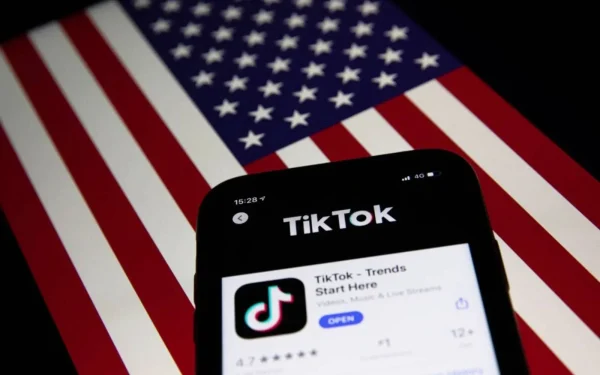Dangerous Exposure
Are middle school students watching TV that’s too mature? If so, what are the consequences?
Many middle schoolers are unaware of the consequences that may occur as a result of watching mature television shows.
Being a child means happiness, summer vacation, friends, birthday parties, the latest Disney movies. The list could go on and on. But what happens when these things are taken away from us and replaced with gruesome images, crudeness, and sexuality? Via television and online media, many children are exposed to T.V. shows which depict acts of violence and inappropriate themes. Despite the adult content and ratings of these shows, children choose to watch them anyway. Why are parents not more involved in controlling what their children watch? What long-term effects are related to watching gratuitous and inappropriate content? Do children realize the harm they may be doing to themselves?
According to recent findings published by The Huffington Post, children who are extensively subjected to violent themes and images in T.V. shows have trouble with moral reasoning, that is deciding what’s right and wrong. Similarly, those findings also stated that children who watch T.V. shows with inappropriate themes/images and language have a higher chance of thinking that inappropriate language and violence is acceptable to use.
Based on a recent poll taken by 134 students at The Benjamin Middle School, the three most popular shows amongst students are Modern Family (56%), Saturday Night Live (36%), and Family Guy (34%). While Modern Family is rated TV-PG according to IMDb.com (International Movie Databse), the site’s “Parents Guide,” reports that the show still contains sexual themes and profanity. IMDb’s Parents Guide can be quite helpful to some parents, though. Many of the movies and TV shows listed on IMDb have an accompanying Parent Guide, the content of which is listed by users. It specifies the actual content of movies and TV shows as it pertains to five categories: Sex and Nudity, Violence and Gore, Profanity, Alcohol/Drugs/Smoking, and Frightening/Intense Scenes. There are other similar websites that do the same, such as kids-in-mind.com and commonsensemedia.org.
Of those top three shows TBS middle school students prefer to watch, Saturday Night Live is rated TV-14 due to it’s language and sexual themes. Family Guy is also rated TV-14 because of it’s violence, language, and sexual themes and images. In addition, 29% of the students polled, including seven sixth graders, said they watch South Park which is rated TV MA (for mature audiences) and is not appropriate for children according to the television industry. These statistics may cause concern among the parents, considering the long-lasting effects of watching violent and inappropriate T.V. shows at a young age.
According to the survey the middle school took, one hundred and thirteen (87%) of the students say that their parents are aware of the shows they are watching. But are these parents fully aware of what goes on in these shows? One of our TBS parents, who wished to remain anonymous, said, “I give [my son] straight up answers or an open floor for discussion or guidance to help him navigate the crazy world that is unfolding in front of him.”
Another anonymous parent said, “He’s very good at understanding what he can handle and what’s age-appropriate. And his interests vary wonderfully from science fiction to sports to mystery to silly to typical 13-year-old boy interests. If I think it’s a little too racy or mature, we talk about it and see if he agrees or disagrees. I’m not here to judge – his interests are his. I leave it open for discussion.” It seems that most Benjamin Parents are aware of what their children watch, and while they are okay with some of it, they have talked to their children about the reality level of the television shows and how they compare to real life.
While some cartoons may seem innocent, looks can be deceiving. For instance, Family Guy may seem like a harmless cartoon, but it’s hardly kid stuff. As stated by (IMDb), Family Guy is actually rated TV-14 for “. . .crude sexual content, language, some nudity, and strong violence.” And while before every episode there is a warning that says, “This program may contain material that parents might not find suitable for viewers under the age of fourteen,” how many of us actually pay attention to these warnings? The effects of these T.V. shows are limitless, but it doesn’t just stop there. There’s also the ever-burgeoning world of video games.
New amounts of research have clarified the consequences, both-positive and negative, of playing violent video games. According to raisesmartkids.com, the positive outcomes include problem solving and logic, hand-eye coordination, multitasking, and following instructions. However, the downsides of exposure to violent video games are hostile urges and slightly aggressive behavior. Games like Call of Duty, Grand Theft Auto, and Destiny fall into that violent category. Grand Theft Auto is rated MA for “mature,” which means if it were a movie it would probably be rated R. It says on the box that the suggested minimum age requirement is fifteen to sixteen-years-old. As well, Call of Duty, and Advanced Warfare are rated M for intense violence, gore, profanity, and drug references. Basically, if Call Of Duty and Advanced Warfare were movies, they would be rated R. Certainly a rating a parent would love to avoid. The question we have to ask ourselves is simple: at what point are we willing to lose the innocence we are blessed with as children? Because once you take the first step into the real world, there is no turning back.
Research shows that watching violent television shows and playing violent video games at a young age leads to difficulty with moral reasoning – making sound, ethical decisions. Experiencing violence at a young age can also sometimes lead to viewing violence as acceptable. The same goes for exposure to mature behavior (i.e. drug use, sex, profanity, etc.) – it could lead to the belief that such behavior is acceptable. Considering how middle-school-aged children are susceptible to certain forms of entertainment, students may want to consider the repercussions before they place themselves in a position of vulnerability. Next time a student plans to watch television or go play a video game, perhaps he or she should try to stay on the safe side and stick with Spongebob Squarepants.





